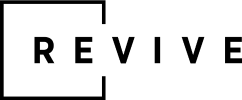“That which was from the beginning, which we have heard, which we have seen with our eyes, which we have looked at and our hands have touched—this we proclaim concerning the Word of life. 2 The life appeared; we have seen it and testify to it, and we proclaim to you the eternal life, which was with the Father and has appeared to us. 3 We proclaim to you what we have seen and heard, so that you also may have fellowship with us. And our fellowship is with the Father and with his Son, Jesus Christ. 4 We write this to make our[a] joy complete.” 1 John 1.1-4
Today is Mother’s Day! It is appropriate that we speak about “beginnings” on this day because each of us has a beginning because of our mothers. However they lived their lives or loved us, we each have life because of them. This introduction to 1 John is also a beginning to a new study in which we can continue to be formed into the likeness and image of a loving God.
According to scholars, 1 John was written by John, the apostle and disciple of Jesus, around 90–100 CE, approximately 60 years after the resurrection, life, and ministry of the Savior. It was written to “assure believers of the certainty of their faith and to refute heretical doctrines teaching that Jesus was not fully human and fully divine” (https://www.biblegateway.com/passage/?search=1%20John%201&version=NIV).
As John is the author, the similarity between this letter and the Gospel of John regarding the “beginning” statements is undeniable. “In the beginning was the Word, and the Word was with God, and the Word was God” (John 1:1). Here we read in verse 1, “That which was from the beginning, which we have heard…” It’s almost like a television series when they recap the show before saying, “Previously on The West Wing,” or fill in your show of choice. John is connecting his Gospel to this letter. He who identifies Jesus as the “beginning” and the Son of God, a co-creator with God, is now reminding us of the start of that Gospel by saying, “This is who he is, what we know, what we can trust about Jesus.”
He continues by affirming his earliest memories of the risen Christ: “which we have heard, which we have seen with our eyes, which we have looked at and our hands have touched—this we proclaim concerning the Word of life.” Two things—the disciples saw, heard, and touched Jesus, who is referred to again as the “Word.” John 1 says, “In the beginning was the Word, and the Word was with God, and the Word was God.”
As a result, reflecting on the purpose of 1 John 1, as we see in verses 3–4—to proclaim what has been “seen and heard” so that all people might “have fellowship” with other believers, and this is written so that “our joy may be made complete.”
The joy of knowing Christ, the fullness of the gift of God’s salvation to all who believe, and the connection to other believers are results of this “beginning.” Without a beginning, we would not be born to our mothers. Without God sending Jesus to the world, we would not have the joy of life, of knowing God, and of living abundantly with Christ and one another.
In case you have forgotten, the gift of life and the gift of new life are the greatest gifts we have been given—along with the gift of loving God and loving others. Jesus made all of this possible by becoming the Word made flesh. His beginning, when he came to earth, began for us hope, life, love, and a future.
So, as we reflect on beginnings today, we think about a mother who gave us life and a God named Jesus who made all of that possible. The ability to breathe was a gift to us, as is daily sustenance to be the person Christ has made us to be.
“O Lord God, I thank you for my mother, my wife, my sister, and friends who represent your motherly love. Thank you for the gift of life from the earliest moment of conception to the birth of a newborn. I pray that we would each be especially born again in you. Come now, Holy Spirit, fill us with your power and love. Teach us about beginnings and about our purpose to know you and to make you known. For you are good, and your love endures forever.” Amen
